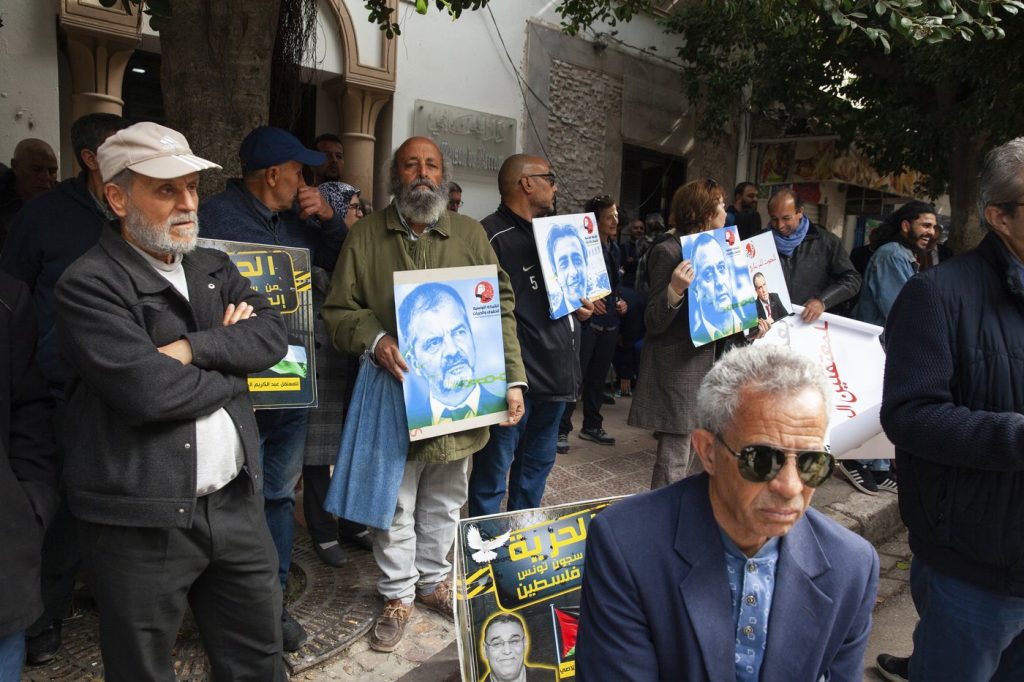TUNIS, Tunisia (AP) – A notable trial commenced on Tuesday in Tunisia, involving 40 defendants, including prominent opposition figures accused of conspiracy against state security. The proceedings elicited protests outside the courthouse, with demonstrators labeling the case as unfounded and part of a politically motivated crackdown orchestrated by the government. Activists have shown that this trial is indicative of the increasing tensions within Tunisian politics, especially under President Kais Saied's administration.
In a concerning development, nine of the accused were barred from attending the trial due to being considered too dangerous for release from custody. Defense lawyers argued that their clients deserve the right to appear before a judge, reflecting the broader demands from protesters advocating for transparency and justice in the judicial process.
The group of defendants not only comprises opposition politicians but also includes former diplomats, business elites, journalists, lawyers, and human rights defenders. Some of these individuals have endured more than two years of pre-trial detention, while others have fled the country to escape the mounting pressure. The charges against them vary widely, with some defendants facing potential capital punishment. Allegations include plotting against state security, belonging to a terrorist group, and maintaining illegal ties with foreign entities and diplomats.
Critics of President Kais Saied assert that the allegations are fabricated and that the trial is driven by political considerations. Saied, re-elected for a second term in 2023, has characterized the defendants as "traitors and terrorists," defending his administration's actions amidst accusations that he executed a coup in 2021, which resulted in the dissolution of parliament and an extension of executive power.
Historically, Tunisia is recognized as the birthplace of the Arab Spring pro-democracy movements. However, under Saied's rule, there has been a significant regression in civil liberties and freedoms. The recent actions of the government have drawn criticism from various quarters, including the U.N. High Commissioner for Human Rights, who has accused the Saied administration of weaponizing the judiciary to suppress dissent since the consolidation of his power in 2021.
Supporters of Saied argue that the crackdowns are essential to provide stability to a nation experiencing high inflation, rampant unemployment, and widespread corruption. Many citizens blame political elites for the ongoing economic woes and the mismanagement of national resources. This polarized perspective signifies a profound division in Tunisian society regarding the measures taken by the government and their consequences.
Global human rights organizations have condemned the treatment of the defendants throughout the judicial process. The International Commission of Jurists (ICJ) issued a statement pointing to documented systematic violations of the rights of the accused during the pre-trial phase. Such actions raise serious questions about the legitimacy, independence, and impartiality of the trial process.
As this high-profile case unfolds, it remains to be seen how the judicial proceedings will impact the political landscape in Tunisia, especially regarding the interplay between state authority and individual rights. The ongoing situation exemplifies the challenges faced by the country in navigating its complex political fabric in the wake of previous democratic aspirations.










